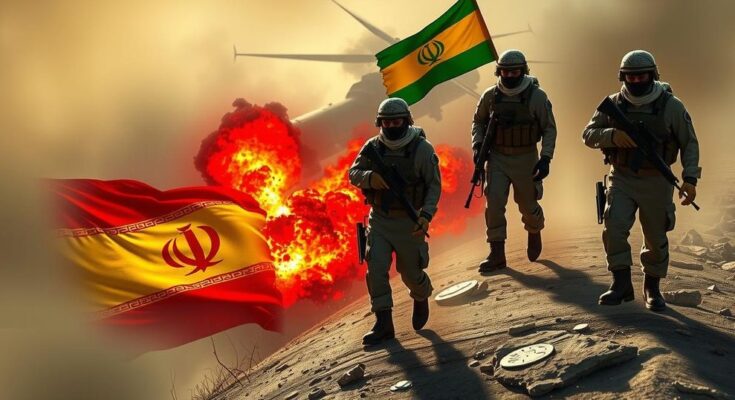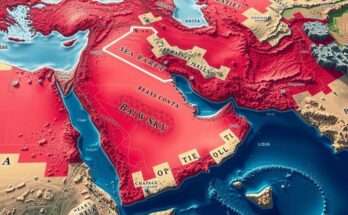Hezbollah’s recent losses, notably following Israeli military operations, have severely weakened its power and influence in Lebanon and diminished Iran’s ability to project strength in the region. The assassination of key leaders and the extensive destruction of military resources have undermined Hezbollah’s capabilities, prompting discussions on its future role amidst ongoing geopolitical shifts.
On September 17, during a heightened conflict with Israel, Hezbollah militants faced a devastating turn of events when Israeli intelligence, via the Mossad, rigged their communication devices with explosives. This unexpected detonation resulted in significant casualties, including approximately 30 fatalities and many injuries. The operation, as explained by a former Mossad agent, aimed not only to eliminate militant personnel but to convey a broader message of Israeli dominance in the region. Subsequently, Israeli airstrikes led to the assassination of Hezbollah leader Hassan Nasrallah, causing the organization’s structure to suffer profound damage.
As the conflict escalated, hostilities between Hezbollah and Israel intensified following the October 7, 2023, Hamas attacks, which ignited a period of severe violence that left many Lebanese citizens displaced. Following fourteen months of fighting, a fragile ceasefire was brokered by the United States and France, leading to discussions about the future role of Hezbollah in Lebanon. Israeli officials indicated intentions to ensure Hezbollah could not regain its former strength, having already diminished approximately 80% of its weaponry.
Sima Shine, a former Mossad analyst, articulated that Hezbollah has been considerably weakened and that the loss of leadership, including figures surrounding Nasrallah, has left the organization fragmented. While Hezbollah maintains political representation within Lebanon, its standing is diminished, and it has been criticized for acting on Iranian directives rather than national interests.
Experts agree that Iran’s historical reliance on Hezbollah to project its influence is increasingly ineffective. The recent geopolitical shifts, including the loss of control over Syria following Bashar al-Assad’s fall, have further isolated Hezbollah, complicating Iran’s ability to supply support. Analysts emphasize that the challenges facing Hezbollah now require Iran to reevaluate its strategies in the region, thereby altering the dynamics of proxy warfare that have shaped its approach for decades.
The context surrounding Hezbollah’s weakening illustrates a significant shift in the Middle Eastern geopolitical landscape. Following the Israeli-Palestinian conflict escalation in 2023, particularly after Hamas’s assaults on Israel, Hezbollah’s retaliatory actions have led to a severe counter-response from Israel. The ongoing military exchanges exacerbated tensions, leading to extensive destruction in southern Lebanon. In this turbulent backdrop, Israeli strategies not only targeted Hezbollah’s military capabilities but also aimed to undermine its leadership and influence in Lebanon. This disturbance in Hezbollah’s operations raises concerns regarding the future role of Iran in the region, particularly as its primary proxy faces challenges on multiple fronts.
The recent military engagements and the subsequent ceasefire have significantly eroded Hezbollah’s capabilities and influence as a proxy for Iran. The targeted operations executed by Israeli forces have dismantled key leadership and operational structures within Hezbollah, resulting in a drastic shift in its political and military standing. Experts believe that these developments, coupled with Iran’s diminishing strategies, may compel a reassessment of its regional tactics, indicating a potential paradigm shift in Middle Eastern alliances and power structures.
Original Source: www.cbsnews.com




